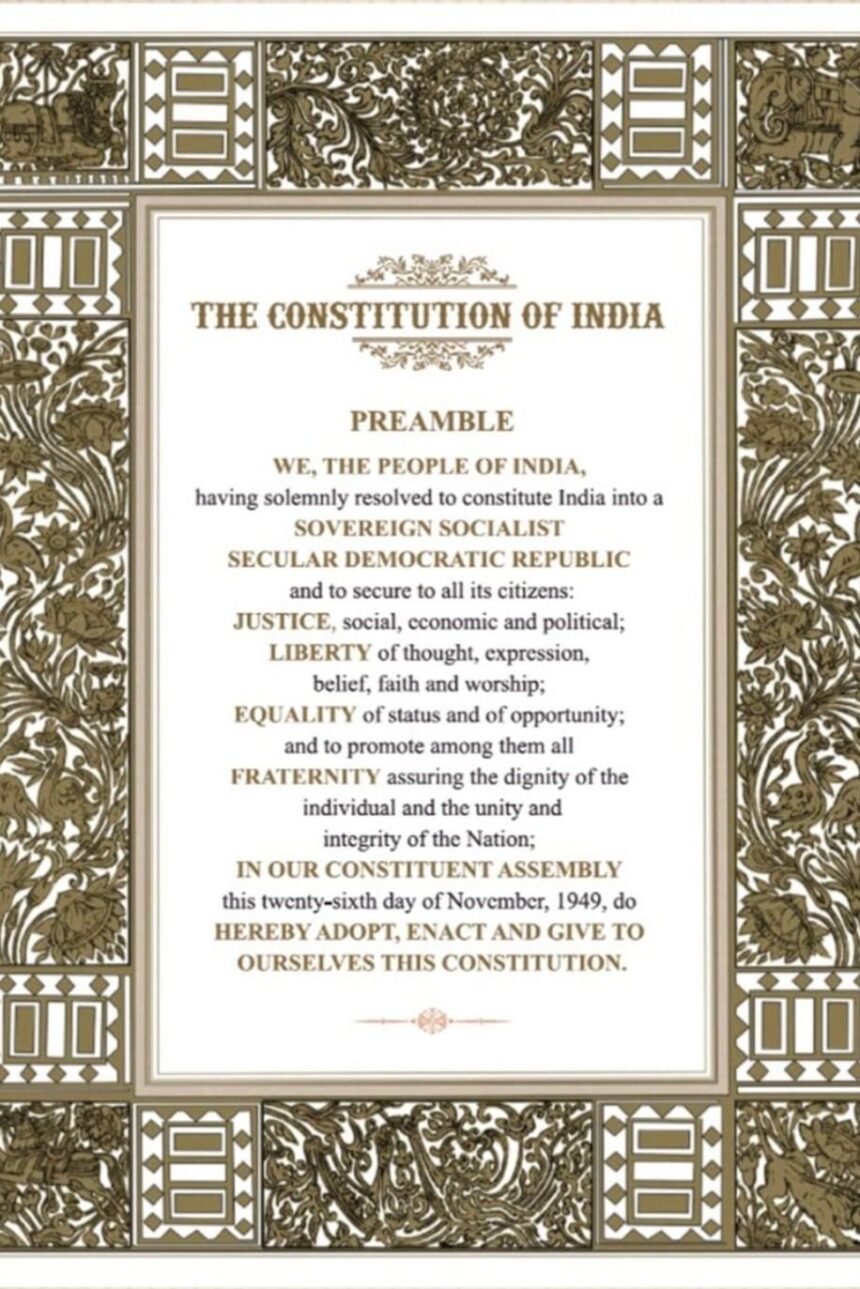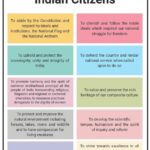Preamble to the Constitution of India
The Preamble is the introductory statement of the Constitution. It is often called the “soul of the Constitution” because it reflects the essence, philosophy, and core values of the Indian nation. It tells citizens and the world what India stands for and what goals the Constitution aims to achieve.
Text of the Preamble
The Preamble reads as follows:
“We, the people of India, having solemnly resolved to constitute India into a Sovereign Socialist Secular Democratic Republic and to secure to all its citizens: Justice, social, economic and political; Liberty of thought, expression, belief, faith and worship; Equality of status and of opportunity; and to promote among them all Fraternity assuring the dignity of the individual and the unity and integrity of the Nation; in our Constituent Assembly this twenty-sixth day of November, 1949, do hereby adopt, enact and give to ourselves this Constitution.”
Meaning and Significance
“We, the People of India”
The Constitution derives its authority from the people, not from kings or rulers.
Highlights popular sovereignty, meaning all power belongs to the citizens.
“Sovereign”
India is fully independent and has the power to make its own laws without interference from any other country.
“Socialist”
The state aims to reduce economic inequality and ensure fair distribution of wealth.
“Secular”
India has no official religion. All religions are treated equally, and citizens have freedom of faith.
“Democratic”
Power lies with the people, exercised through elections and representation.
“Republic”
The head of the country (President) is elected, not hereditary, unlike monarchies.
“Justice – Social, Economic, and Political”
Social Justice: Eliminates discrimination based on caste, religion, gender, or class.
Economic Justice: Ensures fair distribution of wealth and opportunities.
Political Justice: Guarantees equal participation in political life.
“Liberty of Thought, Expression, Belief, Faith, and Worship”
Protects freedom of speech, religion, and personal beliefs.
“Equality of Status and Opportunity”
Everyone is equal before the law, and discrimination is prohibited.
“Fraternity”
Promotes brotherhood, unity, and dignity among citizens.
Ensures the integrity of the nation.
Significance of the Preamble
Serves as a guiding light for interpreting laws and policies.
Expresses the objectives of the Constitution and the philosophy of the Indian state.
Helps judiciary in interpreting the Constitution in case of ambiguity.
Reflects India’s commitment to democracy, secularism, and equality.
Historical Context
Inspired by the Objectives Resolution of 1946, moved by Jawaharlal Nehru.
Drafted by Dr. B.R. Ambedkar, reflecting the values of justice, liberty, equality, and fraternity.
Conclusion
The Preamble of the Indian Constitution is more than just an introduction; it is a compact summary of India’s identity, vision, and aspirations. It binds all citizens and institutions to the principles of justice, liberty, equality, and fraternity, ensuring that India remains a sovereign, socialist, secular, democratic, and republic nation.








